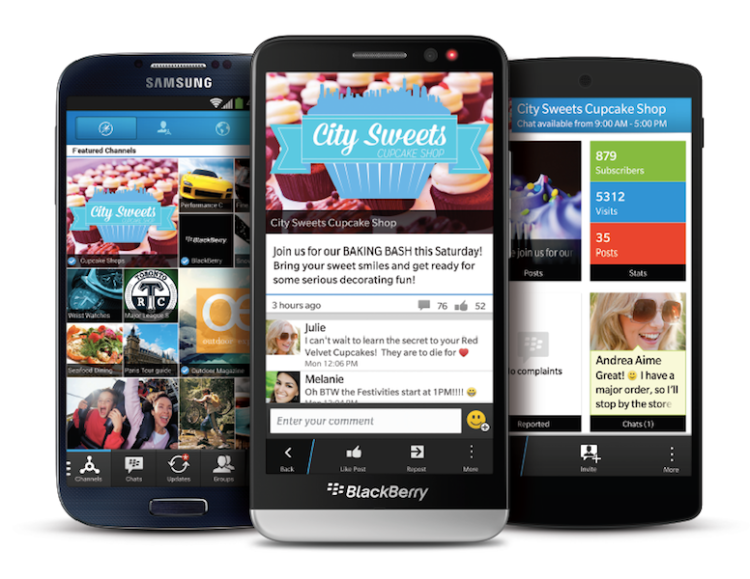BlackBerry announced today that it would be adding Channels and Voice to the iOS and Android versions of its highly popular BlackBerry Messenger (BBM) service in a new 2.0 release. Has BBM now become the company’s killer product?
Although it’s been trying to create excitement around its BlackBerry 10 platform and devices, the Canadian company has not found the popularity for those products that it has for the cross-platform BBM.
And no wonder: BBM is an addictive, useful instant-messaging tool that runs on iPhones and Android devices, while Blackberry 10 is a dying phone OS with minuscule market share.
At the end of December, BlackBerry announced that BBM had just added 40 million iOS and Android users in 60 days. As of the middle of last year, BlackBerry-based users of BBM were about 60 million. With these new capabilities, BBM is now a mobile-first, cross-platform service that is competing functionally with Twitter, Skype, and to some degree Facebook and LinkedIn.
That popularity will now be enhanced in the iOS/Android versions by a new Voice capability, to make free voice calls over Wi-Fi or a data connection; and by the addition of topic-based chatting with other BBM users via Channels. Both of these features are already available in the BlackBerry version of BBM, and now they’re also coming to other phones.
Customers or businesses can create channels, and can set “scheduled chat hours” for followers to chat with a channel’s owner. Channel followers get notices when their channel has a new post or someone replies to their comments, and channel owners can set up comment approvals or whether commenting is allowed. A performance dashboard tracks channel use.
The new BBM enhancements also include one-click sharing of photos, voice notes and other material, 100 new emoticons, Dropbox support, larger BBM groups, and live location sharing from Glympse that expires after a set time.
‘Their Long-Term Future’
When the iOS and Android versions of BBM were first made available, after weeks of delay, there were a reported 10 million downloads in the first twenty-four hours. According to the Canadian company, the delay had been caused by problems from a pre-release unauthorized version that acquired a million users in the first seven hours it was available.
Of course, that’s a level of demand that the company would love to see for its smartphones. Which is why Brad Shimmin, an analyst for industry research firm Current Analysis, told Venturebeat that BBM’s “got to be a key part of their longterm strategy” for both consumer and business markets.
For the moment, he noted, the free app is building market presence with consumers, but also “inroads into the enterprise, where its brand has real street cred.”
Under its new leadership, the company said it is refocusing on its traditional business base, and Shimmin noted that, if the company can “deliver BBM as an enterprise service in a full package that is a locked-down solution, it becomes their long-term future – more than their OS, devices or mobile management suite.”
But a huge consumer presence by BBM could drive the company to reconsider its announced business-first focus.
VentureBeat's mission is to be a digital town square for technical decision-makers to gain knowledge about transformative enterprise technology and transact. Learn More

![Reblog this post [with Zemanta]](http://img.zemanta.com/reblog_e.png?x-id=744ebe9e-fb5e-4451-870c-43322c33099a)
